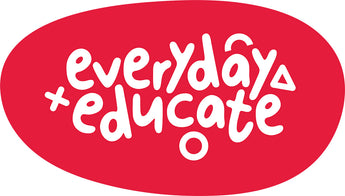Introduction
Social skills are essential for children to develop positive relationships with others. They help children communicate effectively, cooperate with others, and resolve conflicts peacefully. Children who have strong social skills are more likely to be successful in school, make friends, and feel happy and well-adjusted.
Why are social skills important?
There are many reasons why social skills are important for children. Some of the key benefits of strong social skills include:
- Improved communication skills: Children who have strong social skills are better able to communicate their thoughts and feelings to others. This can help them to build stronger relationships and resolve conflicts peacefully.
- Improved cooperation skills: Children who have strong social skills are better able to cooperate with others. This can help them to work together on projects, share toys, and take turns.
- Improved conflict resolution skills: Children who have strong social skills are better able to resolve conflicts peacefully. This can help them to avoid getting into fights and maintain positive relationships with others.
- Increased self-esteem: Children who have strong social skills are more likely to have positive self-esteem. This is because they are able to build relationships with others, feel accepted, and feel good about themselves.
How can I help my child develop social skills?
There are many things that parents can do to help their children develop social skills. Some of the key tips include:
- Modeling good behavior. Children learn by watching the adults in their lives. Be sure to model the social skills that you want your child to learn, such as being polite, sharing, and taking turns.
- Provide opportunities for social interaction. Encourage your child to interact with other children and adults. This can be done by enrolling them in activities, taking them to the park, or having friends over for playdates.
- Help your child learn how to communicate effectively. Teach your child how to express their thoughts and feelings in a clear and respectful way. This can be done by talking to them about their feelings, helping them to find words to express themselves, and listening to them when they talk.
- Help your child learn how to cooperate with others. Teach your child how to take turns, share, and work together with others. This can be done by playing games, doing chores, and helping them to resolve conflicts peacefully.
- Be patient and supportive. It takes time for children to develop social skills. Be patient and supportive as they learn and grow.
Common social skill challenges
Some children may experience challenges in developing social skills. Some of the most common challenges include:
- Shyness: Shy children may be hesitant to interact with others. They may avoid social situations or withdraw from others.
- Aggressive behavior: Aggressive children may lash out at others verbally or physically. They may have difficulty controlling their emotions and may have trouble following rules.
- Social anxiety: Children with social anxiety may feel anxious or uncomfortable in social situations. They may worry about being judged or rejected by others.
- Autism spectrum disorder (ASD): Children with ASD may have difficulty understanding and responding to social cues. They may have difficulty communicating with others and may have difficulty making friends.
H5: How to help children with social skill challenges
If your child is experiencing challenges in developing social skills, there are many things that you can do to help. Some of the key tips include:
- Seek professional help. If your child is struggling with social skills, it is important to seek professional help. A therapist can help your child to develop social skills and to cope with any challenges that they may be facing.
- Enroll your child in social skills training. There are many social skills training programs available for children. These programs can help children to learn how to communicate effectively, cooperate with others, and resolve conflicts peacefully.
- Create opportunities for social interaction. Encourage your child to interact with other children and adults. This can be done by enrolling them in activities, taking them to the park, or having friends over for playdates.
- Be patient and supportive. It takes time for children to develop social skills. Be patient and supportive as they learn and grow.
Conclusion
Social skills are essential for children to develop positive relationships with others. There are many things that parents can do to help their children develop social skills. By providing opportunities for social interaction, modeling good behavior, and being patient and supportive, parents can help their children to develop the social skills that they need to succeed in life.



 Chat with Us
Chat with Us